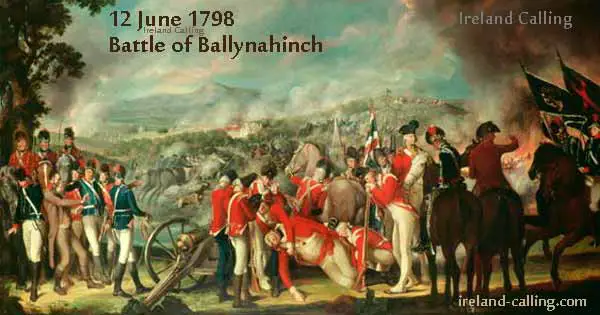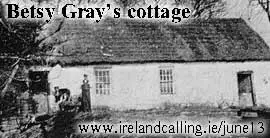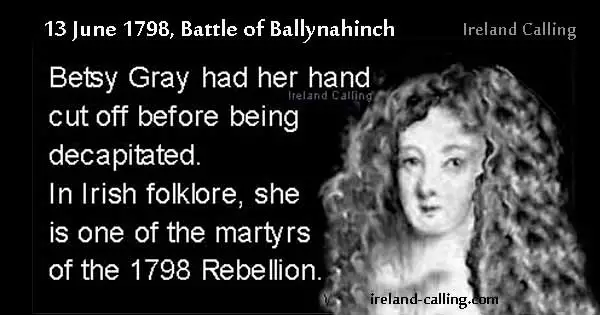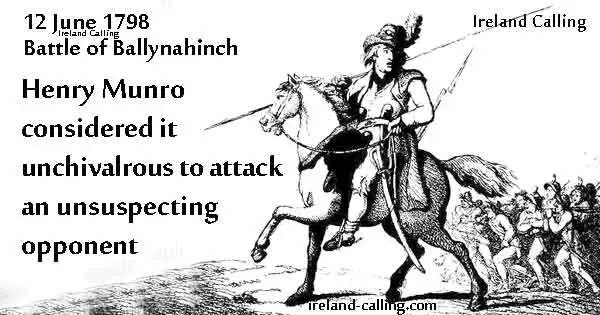The Battle of Ballynahinch was one of the decisive battles of the 1798 United Irishmen Rebellion against British rule. It’s remembered today not only because of its historical importance but for the way the Irish commander Henry Munro may have cost the lives of many of his men because of a misplaced sense of chivalry.

The rebels were largely Presbyterians, emphasising that as the United Irishmen name suggests, this was a rebellion that crossed the religious divide in Ireland. This may seem strange today given the subsequent history of Northern Ireland, but in the late 18th century, anyone who wasn’t of the Anglican faith was discriminated against under the Penal Laws. These prevented Catholics, Presbyterians and other non-conformists from such privileges as voting, taking up public office and access to education.
The battle began on the evening of 12th June 1798. Thousands of rebels were based in the town of Ballynahinch in County Down. British soldiers armed with muskets and cannons approached in two groups down hills on either side of the town.
The British rained down cannon fire on the town from their higher position, leaving the Irish rebels with little chance of repelling the attack. However, the British attack stopped as nightfall came.
Many of the rebels wanted to attack during the night, to drive the British from their superior position. They were overruled though by Munro, who considered it unchivalrous to attack an unsuspecting opponent. Munro was a linen merchant and had no military experience. Many of the rebels left the camp during the night, disillusioned with their leader and concerned about the following day’s conflict.
As soon as dawn broke on the morning of 13th June in 1798, British soldiers attacked again. The assault came in two parts from a hill on either side of the town and the rebels could do little to defend themselves against the cannon and musket fire.
The result was a massacre of rebels. It is estimated that between 300 and 400 were killed as the British overwhelmed the resistance and moved into the town. Hundreds fled as the British went on a killing spree hunting and slaughtering any remaining rebels. They also killed civilians indiscriminately and burnt down several homes in the town.
One of the victims of the post-battle massacre was teenage peasant girl Betsy Gray, who was killed along with her brother and her lover. Gray had her hand cut off before being decapitated and has gone down in Irish folklore as one of the martyrs of the 1798 Rebellion. The GAA competition, the Betsy Gray Cup, was named in her honour and is played for in Ulster to this day.

Munro did manage to escape the massacre but was caught after he was betrayed by a farmer who he had paid to hide him. He was found guilty of treason and hanged on the streets in front of his home in Lisburn as a message from the British to any other potential rebels.
